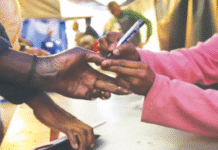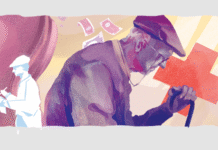
The contention that the matter is all political, cannot be dismissed outright. For those in power, all is right. The opposition bears the brunt of all that is wrong. This has been a long-standing trend. When in power, if the Supreme Court’s judgement is not palatable, the chief justice can be subject to a smear campaign and driven out from the office and country under pressure. The rule of law remains pristine.
On the day that the judgement against Khaleda Zia was decalred and she was sent to jail, an article by Md Zakir Hossain, professor of law, Chittagong University, appeared in the Bangla daily Kaler Kantha. Professor Zakir Hossain alluded to the past of the judge who gave the verdict in the case. Being his classmate in his academic years, he has given a testimonial that the judge has never been involved in politics in his student life. He also claimed the judge got into judicial service at a time when Khleda Zia was prime minister. The writer used these facts to imply that it would be grossly wrong to say there was any political motivation behind the verdict. I do not know of any such effort in the past to prove a judge’s political neutrality on the very day
It is only expected that the country will try a case in keeping with the law and there will be no controversy concerning the court. However, it certainly needs to be seen that it is a fair trial and justice has been served. It is taught in law that ‘justice should not only be done, but it should manifestly and understandably be seen to be done.’ This decision of England’s chief justice Lord Hewart in 1924 has been followed the world over, the bottom line of which is independence of the judge. If there is any indication that the judge has been influenced (not necessarily by the government), that is enough for the verdict to be scrapped.
Certain quarters may say that Khaleda Zia and her associates were taking advantage of their political stand to cover up their corruption by alleging that the trial was politically influenced. But BNP has pointed to the statements of several ministers and leaders of the government that are glaring evidence of political bias. Despite other cases involving billions and billions of taka, this case was given priority as the charges of “stealing orphans’ money” could be used by the ruling coterie as a campaign tool in election politics. Even before the trial was over, the government stated that she “wouldn’t get away with stealing the orphan’s money.” And this same line was used as election campaigning in various meetings within hours that the verdict was pronounced. Before the judgement was passed, many ministers had declared that Khaleda Zia would soon be behind bars.
It is not only Khaleda Zia’s supporters who have brought about allegations of political motivation. In fact, this has been made clear in the statements of many of the leftist leaders who have close proximity with the ruling Awami League. Leaders of CPB, BSD and the Democratic Left Alliance have said, ‘We want a corruption-free country and the punishment of all those who are corrupt, regardless of party considerations.’ In their statement, they said the people feel that this verdict is a reflection of the government’s political motives as the government was so eager to punish Khaleda Zia without bothering to resolve the undemocratic rule of the government which had no public support, the excessive wielding of power, the innumerable allegations of pilferage and so on. The US called for ensuring a fair trial, even after the verdict was declared. This indicated they were aware of the allegations that the trial process was polluted by political influence.
It is undeniable that many are of the opinion that the trial has been politically influenced. If this allegation is only brought about concerning this case, that would be a denial of the greater crisis faced by the judiciary and the rule of law. The attitude of the ruling alliance towards the judiciary is evident in the language used by the ministers and members of parliament against the judges after the judgement scrapped the 16th amendment which had given the parliament power to impeach Supreme Court judges. The public also strongly believes that the verdict scrapping the 16th amendment drew the curtains on the career of former chief justice SK Sinha. Just as no allegations of corruption were heard against him before this verdict, there were no charges or investigations against him once he resigned and left the country. Another bone of contention between justice Sinha and the government was the code of conduct for the lower court over the supervisory control of those judges. The law minister held ‘one individual’ responsible for the friction between the judiciary and the government. His removal resolved all problems. The exit of the chief justice has indubitably questioned the concept of the court’s judicial independence.
We learnt from justice Sinha’s assertion on the 16th amendment verdict that the government is a party in 80 per cent of the cases. And there is ample evidence that the ruling coterie is desperate to win in the political arena by any means. Is this not apparent in the side by side operations of the security forces and the armed activities of Chhatra League and Jubo League which prevent the opposition from taking to the streets? Why would one imagine the court would stay outside of their orbit of victory and dominance?
When a mobile app was made for Game of Thrones, the game went viral. It has been a popular television series in the US, based on a bestselling serial A Song of Ice and Fire by GR Martin. It is about two powerful royal clans of medieval times fighting to gain control over the seven kingdoms of the imaginary continent Westeros. The story is replete with honest characters, liars, traitors, turncoats, mercenaries, wealthy persons and landlords. It has strategic alliances, cruel vengeance, diplomatic manoeuvers and more. The success of the video game is in the amazing satisfaction of defeating the opponents and consolidating power. Will this game gain popularity in Bangladesh? It would seem a waste in spending money on the Game of Thrones, given the politics we’ve been seeing over the past three decades!
* Kamal Ahmed is a senior journalist. This piece, originally published in Prothom Alo Bangla print edition, has been rewritten in English by Ayesha Kabir, Consultant (Content) Prothom Alo English Online.
Source: Prothom-Alo.









